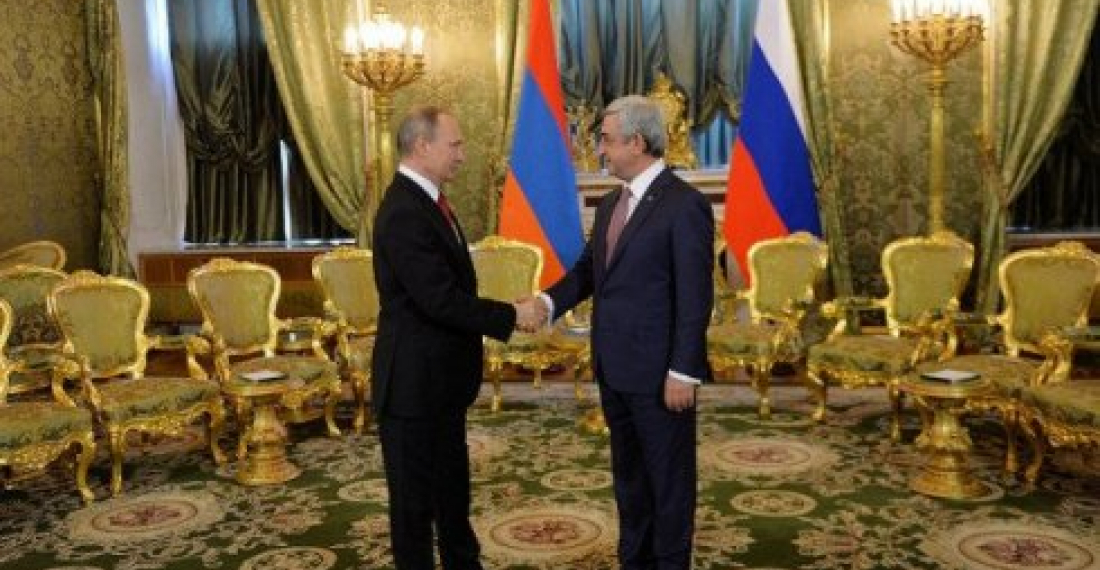Russian President Vladimir Putin hosted his Armenian counterpart Serzh Sargsyan at the Kremlin on Wednesday (15 March). Sargsyan is currently on an official visit to the Russian Federation.
Welcoming the Armenian leader, President Putin said that over the years, relations between Russia and Armenia have turned into a genuine alliance. "We work together actively in all areas in international organisations, both in those established on the post-Soviet space, and in universal international organisations". Putin added,
"Many events have taken place over this time, but our relations have always been built on the deep roots that go back centuries, and that continue to form a solid foundation for the development of our ties today. We know that this meeting today takes place as Armenia prepares for big events in its domestic political life, with a parliamentary election on April 2, and the constitutional reform. This is certainly not an easy process, but I am sure that, under your leadership, Armenia will get through this stage in its development."
In response, the Armenian president said,
"Our cooperation is constantly enriched with new areas, new issues coming up, and our regular summits enable us to review the situation and outline our main cooperation plans for the upcoming future.Yes, this is indeed an anniversary year for our relations. We are marking the 25th anniversary of diplomatic relations. These years have become a time of close cooperation and we have indeed built a true alliance.The nature of our relations sets the agenda. I am sure that today's meeting will be substantive and will take place in an atmosphere of complete trust."
source: commonspace.eu with Kremlin.ru
photo: President Putin and President Sargsyan at the kremlin on 15 March (picture courtesy of the press service of the President of Russia)






